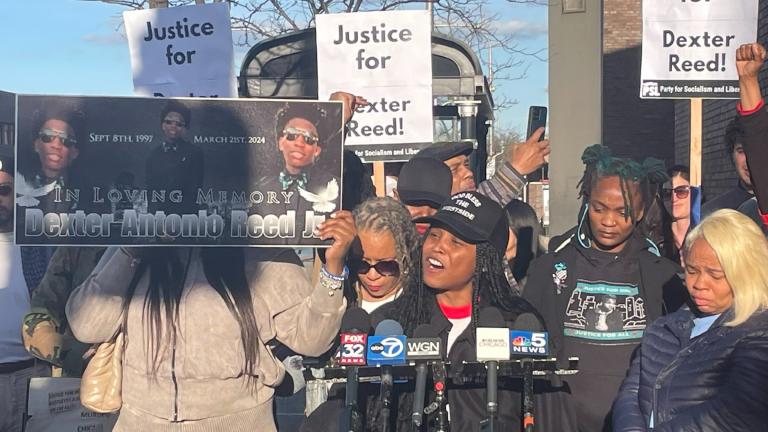Chicago voting rights activists weigh in on the battle over voting rights legislation in Washington D.C. as President Joe Biden and Democratic lawmakers push for two bills that would set national standards for federal elections.
The Freedom to Vote Act would expand voter registration, expand voting access with guidelines for mail-in voting and early voting, establish Election Day as a federal holiday, and prevent state lawmakers from redrawing districts so as to disadvantage Black and Brown voters.
Additionally, the John Lewis Voting Rights Advancement Act would restore the Justice Department’s authority to police election laws in states with a history of discrimination, a key component of the 1965 Voting Rights Act the Supreme Court stripped away in 2013. The fight for federal voting rights legislation has been strengthened by a wave of Republican states implementing laws that restrict voter access, and essentially make it harder to vote, in the name of election security.
“I think it’s important for us as Chicagoans and Illinoisans to care because the fate of the rest of the country is tied to our fate here at home, just because our legislature right now and in the past decade or so has been very good on voting issues doesn’t mean that that’s going to be the case in the future, so it’s important for us to be very intentional and mindful of what’s going on around the country, because we’re never safe here at home if attacks on voting rights are happening anywhere else across America,” says Stevie Valles, executive director of Chicago Votes, a nonprofit that works to get young people involved in the political and civic process.
Activists have been pushing for the restoration of the Voting Rights Act since the Supreme Court dismantled it back in 2013. Now named The John Lewis Voting Rights Advancement Act, the legislation has passed the House but remains stalled in the Senate. Advocates of the bill are hoping more public pressure will lead to progress.
“It’s very important that we reach everyone and we make sure that the message goes through because people power works. We’ve seen it numerous times and it’s important for people to understand what types of legislation are being introduced and pushed for everyone,” says Chantal Grant, founder of Level Up and Vote.
Biden and most congressional Democrats want to change Senate rules so that a simple majority, 51 votes, is needed to approve the legislation and overcome a Republican filibuster. Right now, 60 votes are needed, and Democrats don’t have the votes they need to get either bill approved, but Congress has reauthorized the Voting Rights Act multiple times in the past.
As DePaul University professor Christina Rivers points out, the Senate approved the reauthorization of the 1965 Voting Rights Act by an overwhelming majority in 1975, 1982 and 2006.
“I think that really what stands out and an important aspect of the unified Republican resistance this time around is that what gets overlooked is that this resistance is completely out of step with the GOP’s votes on previous reauthorization of the Voting Rights Act. In the past there was always vigorous partisan and ideological debates over those extensions and expansions of the law, but at the end of the day, the Senate overwhelmingly approved them,” said Rivers, an associate professor of political science at DePaul University.
Rivers also points out that several Republican senators who are currently serving and now against approving the John Lewis Voting Rights Advancement Act, voted for the reauthorization in 2006. Biden and Democrats were hoping to pass voting rights legislation in time for the Martin Luther King Jr. Day holiday, but that now seems unlikely.








